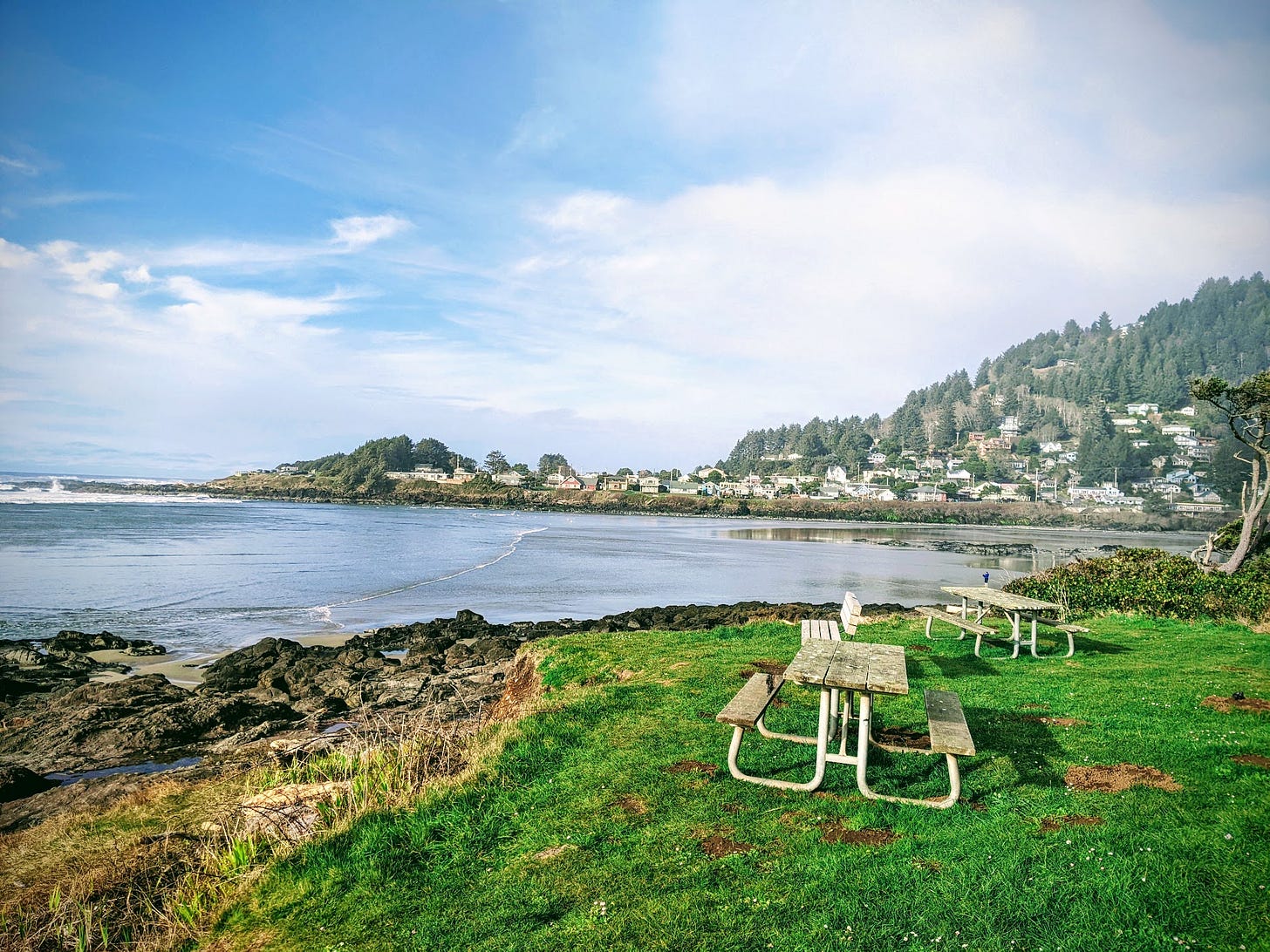My summer began with my first bout of COVID.
An auspicious start to a season of sunshine, no?
First, I'll say that I am — almost entirely — okay.
I came down with it over Memorial Day weekend, when my fever hit 103° F, which is ... not ideal.
And the four weeks of fatigue that followed weren't my favorites.
There remain a few physiological annoyances that I continue to troubleshoot.
But this piece isn't about COVID.
I want to share how I healed and grew emotionally through the experience.
Confronting the emotional healing
Going back to my childhood, times of sickness have stirred up deep feelings of incapability within me.
While it's something I've been working on in recent years, spending a holiday weekend by myself with the most severe illness I've faced in years (ever?) forced me to confront it head-on.
Feeling incapable is a hard thing no matter the context.
Whether it's in your job, or your role as a parent, it's an enormously dispiriting sensation to try to pull yourself out of — while having to deal with the situation that brought up the feeling in the first place.
An illness that directly challenges your physical capability adds an extra dimension to it.
I used to experience immense difficulty in sitting with that feeling of incapability while ill. It was a huge emotional trigger for me, sending me into waves of depression.
I'd feel sorry for myself and try to force myself back into working and living my life normally as soon as possible — which inevitably set back my recovery.
Even as I began to recognize the pattern, it was hard to stop it.
I made progress over the years. I did. It got easier. Better.
But it lingered. Our deepest emotional wounds tend to, don’t they?
When COVID hit, I had no choice but to go as deep into this emotional healing as I could.
I had to do better.
I had to show up for myself.
And I did.
I really did.
I did everything I could to be a caring, supportive person for myself in my time of need.
In addition to doing all the medically right things, I brought out all the self-compassionate tools and language I've learned.
This mattered.
Why self-trust matters
In the last few years, I've become a believer in self-trust as a crucial underpinning in self-love.
Showing up for myself when I had COVID deposited a massive amount of credit into my self-trust account. 💰
I’m finding that the more I build trust in myself, the less I worry about losing myself again or falling backward into a hurting version of me.
The easier it becomes to rest into the version of me I’m becoming.
But back to COVID.
How self-trust leads to self-love
This experience brought me closer to my body in a loving way. I let go of a number of unhelpful beliefs about my body, including a few I didn't realize I had.
In the weeks of recovery since, I've treated my body with more kindness and intention, as I've slowly rebuilt healthy living practices. I feel grateful to get to do that with a fresh heart.
As a wonderful bonus, many people showed up for me in supportive ways, from dropping off supplies to checking in on me regularly in kind, encouraging ways.
After navigating the challenging experience of uprooting myself last year and moving from my beautiful home on the Oregon coast back to Portland, and how in between I felt for months, to know that I have a group of people here who love and care for me means more than I can say.
Relating to hardship
I titled this post "Finding the good without glorifying hardship" because both parts matter.
It makes me sad sometimes when I see people glorify hardship or trauma, as if having to make it through hard things is something to have nothing but positive vibes for.
It is possible — and necessary — to celebrate how we and those we care about find ways to navigate big challenges while accepting that there was genuine pain — and not expecting someone to release all negative feelings about that event in order to be magically 100% healed.
That's neither realistic nor healthy.
I love myself more than I did before COVID knocked me down.
I am a more emotionally healed person.
That self-trust I spoke of earlier? It’s evident in how I've built back up and generated new levels of happiness and momentum in my life and work.
I am grateful for those things.
Am I grateful or glad that I got COVID?
I don't know if that question has an answer — or if it needs to.
We need less “thank god for that hardship so that you could get stronger” energy, and more “I’m sorry that was and is so hard, and also I see you doing your best to navigate it and I’m really proud of you” vibes.
Maybe I don't have to appreciate getting COVID in order to appreciate myself.
Maybe it's okay to let ourselves acknowledge that the hard thing was hard — and to be able to celebrate ourselves, our healing, and our growth without glorifying the experience of the hardship itself.
Is there part of this that resonates with your personal experience? I’d love to hear from you in the comments! 🩵



